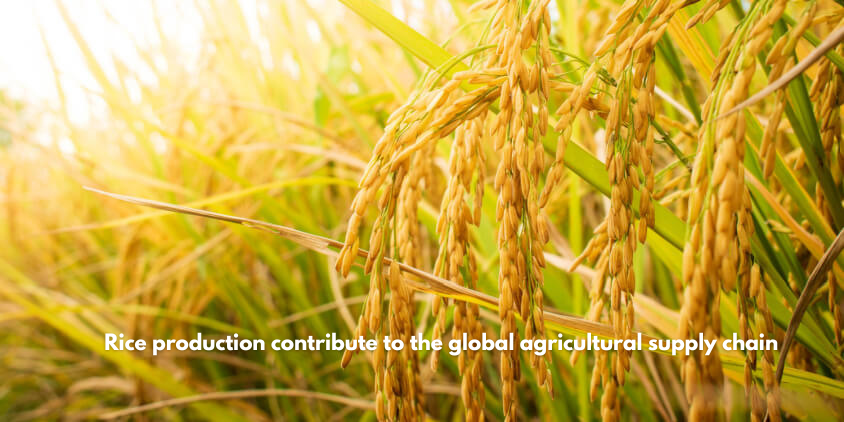Rice production contributes to the global agricultural supply chain in several key ways:
- Global Food Security: Rice is a staple food for over half of the world’s population, especially in Asia, making it essential for food security. The widespread cultivation and distribution of rice ensures that billions of people have access to a reliable source of nutrition.
- Economic Impact: Rice production supports the economies of many developing countries, particularly in Asia, where it provides livelihoods for millions of farmers and workers in rural areas. It contributes significantly to the GDP of countries like China, India, and Thailand.
- Trade and Exports: Rice is a major agricultural commodity in global trade. Countries like India, Vietnam, Thailand, and the United States are top exporters, supplying rice to countries that cannot meet their domestic demand. This trade helps stabilize global rice prices and maintains supply consistency.
- Value-Added Products: Beyond raw rice, the production process generates a variety of value-added products, such as rice flour, rice bran oil, rice noodles, and rice cakes, which are essential in various food sectors, including the snack, beverage, and health food industries.
- Employment Generation: Rice farming and processing provide employment to millions of people in the agricultural, processing, logistics, and retail sectors, supporting livelihoods in both rural and urban areas.
- Supply Chain Integration: The production, milling, packaging, and distribution of rice link numerous industries, from agriculture to food processing, packaging, and retail. This integration ensures the steady flow of rice from farms to consumers worldwide.
- Cultural and Culinary Significance: Rice has a significant cultural and culinary role in many countries, influencing the global agricultural market. Its widespread use in different cuisines drives demand for both raw and processed rice products across various regions.
- Sustainability and Innovation: Efforts to improve rice yield, water efficiency, and resistance to climate change contribute to the sustainability of global agriculture. Innovations in rice farming, such as drought-resistant varieties and precision agriculture, are improving rice production efficiency.
Rice production is vital to the global agricultural supply chain, supporting food security, economic development, international trade, and the creation of value-added products. It plays a central role in feeding a large portion of the world’s population while driving employment and economic growth in rice-producing countries.









